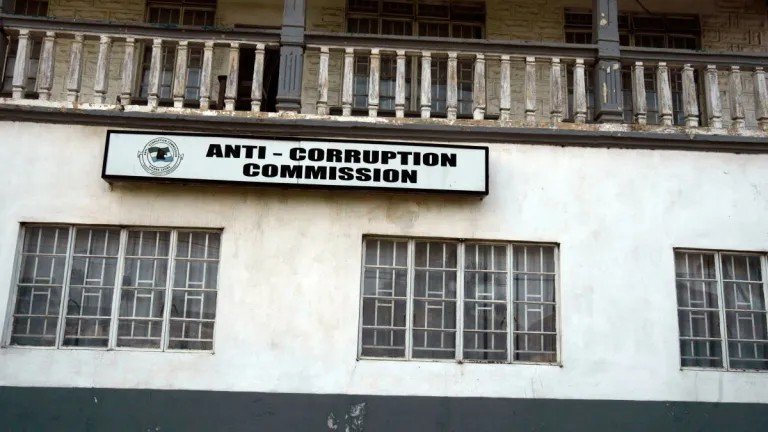By Alpha Amadu Jalloh, Written for Africa Publicity
In Sierra Leone, the distinction between the government’s structural integrity and the pervasive corruption among its officials is stark. The nation’s Constitution and legislative framework are designed to promote transparency, accountability and the rule of law. However, the implementation of these laws is often undermined by corrupt practices among those entrusted with their enforcement.
The 1991 Constitution of Sierra Leone lays the foundation for good governance. It emphasizes the separation of powers, fundamental human rights and the responsibilities of public officials. Subsequent legislation, including the Anti-Corruption Act and its amendments, established mechanisms to investigate and prosecute corruption cases. These laws reflect a clear commitment to combating corruption and promoting ethical conduct in public service.
Yet, corruption remains one of the most crippling diseases eating away the soul of Sierra Leone. Across the country, citizens no longer trust their institutions. They believe that the police are not only corrupt but also predatory. Many see parliamentarians as self-serving and detached from the people they claim to represent. Tax officials are viewed as bribe collectors and business elites are perceived as accomplices in the grand looting of the nation’s resources.
The judiciary, which should serve as the last line of defence, is often seen as compromised. While the laws are clear and rooted in justice, those tasked with interpreting and enforcing them have frequently allowed personal interests to override their duty to the nation. The stench of corruption rises not from the Constitution or the written laws but from the actions of those who manipulate, delay and misapply them for selfish gain.
The Anti-Corruption Commission has indeed taken steps to address corruption. Special divisions and fast-track courts have been introduced to handle cases. But even within these efforts, loopholes remain. Some convicted officials have walked free after paying fines that are insignificant compared to the amounts they stole. Others continue to hold public office despite clear evidence of misconduct.
High-profile scandals have revealed how deeply corruption is rooted. Some ministers have been caught diverting public funds. Others have used their offices to award contracts to friends and family members. Top civil servants have been implicated in exam malpractices, procurement fraud and illicit land deals. The problem is not that Sierra Leone lacks laws. It is that those in power ignore them.
The situation is worsened by political patronage. Appointments are often based on loyalty rather than merit. Once in office, officials operate with impunity, knowing that party allegiance protects them from prosecution. Corruption becomes a reward system. The more loyal you are, the more you’re allowed to get away with.
From State House to local councils, the rot is visible. Some senior officials surround themselves with praise singers and bodyguards, living lavishly while the masses suffer. They preach patriotism by day and steal by night. Meanwhile, the laws, written in black and white, sit quietly on the shelves, waiting to be respected.
Many international partners continue to invest in Sierra Leone’s development. But these efforts are undermined by the same corrupt hands that accept aid with one hand and embezzle with the other. Instead of serving the people, public office has become a ladder for personal enrichment.
This reality is both painful and dangerous. A government can only function effectively if its officials are committed to the law. When the people lose trust in those who govern them, society begins to crumble. Hope gives way to apathy. Talent migrates. Crime rises. The social contract is broken.
It is time to say the truth loudly. The government as an institution is not the problem. The Constitution is not flawed. The laws passed by Parliament are not inherently weak. The problem is the army of corrupt officials who refuse to uphold them. They bend rules to suit their interests. They frustrate honest citizens. They abuse power and betray the very system that gave them the opportunity to serve.
The real enemy of progress in Sierra Leone is not the government. It is those who hide behind the title of government to destroy its credibility. They pretend to be servants of the people but act as masters of theft. These are the ones poisoning the future of the country. These are the ones who must be named, shamed and removed if Sierra Leone is to rise from the ashes of underdevelopment.
If we are to move forward as a nation, we must start by cleansing the system of these parasites. We must build a culture where service to the nation is sacred and corruption is intolerable. Only then will the honest laws we have begin to work for the people they were designed to protect.








